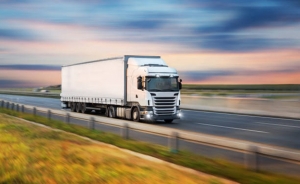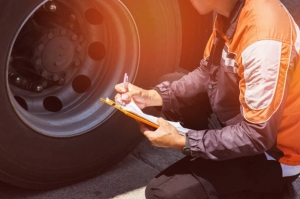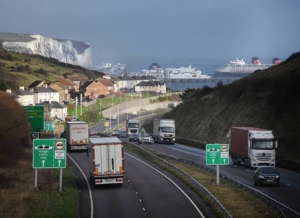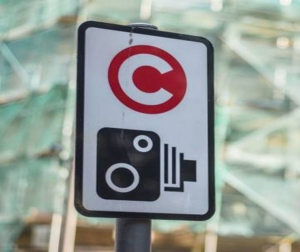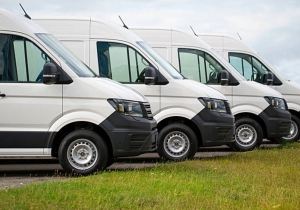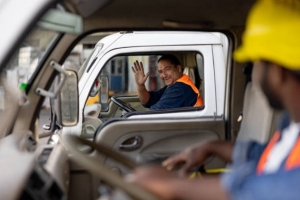Test Owner
MPs Warn of Mounting Costs as HGV Tax Set to Rise
Ministers are facing criticism over plans to increase Vehicle Excise Duty (VED) for heavy goods vehicles from April, with some MPs warning operators could see annual bills climb by more than £2,000. The rise, confirmed in last year’s Autumn Budget, will take effect from 1 April 2026 and will uprate lorry tax in line with inflation.
The changes apply to a wide range of commercial vehicles, including rigid trucks, articulated units and vehicles hauling trailers or abnormal loads. A 44-tonne lorry currently attracts an annual charge of £1,643. During Commons scrutiny of the Finance Bill, Shadow Exchequer Secretary James Wild argued that the system is already highly complex, with more than 80 different VED bands determined by weight, axle set-up and emissions standards.
MPs also pointed to wider financial pressures on the haulage sector. Industry figures estimate fuel duty alone adds over £2,000 a year to the running costs of a single HGV. Additional strains include higher wages, business rate changes and post-Brexit administrative burdens affecting trade.
Liberal Democrat MP Joshua Reynolds said repeated policy shifts risked placing further strain on a sector vital to the UK economy. However, Treasury minister Dan Tomlinson defended the move, saying the uprating merely maintains rates in real terms and provides certainty for businesses. He added that future tax decisions would be considered ahead of the next Budget, while fuel duty is due to remain frozen until August 2026 before staged increases begin.
DVSA Issues New Inspection Rules for HGVs and PSVs
The DVSA has published refreshed Heavy Goods Vehicle (HGV) and Public Service Vehicle (PSV) Inspection Manuals, due to take effect from 1 April 2026. The revised guidance will be used across Great Britain for annual tests and roadside checks, making it essential reading for fleet operators, transport managers and workshop teams.
Released on GOV.UK, the updated manuals set out the latest standards inspectors must apply when assessing commercial vehicles. They cover defect categories, reasons for failure and the step-by-step processes examiners should follow, replacing earlier versions of the guidance currently in use.
Although the overall test framework remains broadly the same, the 2026 editions aim to improve consistency and reduce confusion. The DVSA has tightened up wording, restructured sections and added clearer explanations of terms used throughout. This comes as vehicles continue to incorporate more complex design features and advanced safety systems.
Several technical areas have been sharpened, including inspection guidance on sideguards, braking components and corrosion. There is also clearer direction on how load indexes relate to GB plated weights, alongside corrections designed to help inspectors and operators interpret requirements in the same way.
The DVSA has not presented the changes as a major shift in enforcement, but operators are being urged to review the updates early. Even small adjustments can affect pass rates, roadside outcomes and expectations around routine maintenance between tests. Fleets that align their checks and records with the new manuals should be better placed to avoid failures and stay compliant.
EV Skills Gap Threatens Progress
A shortage of qualified electric vehicle (EV) technicians could slow the transition to cleaner transport, industry bodies have warned. Logistics UK says fleet operators may hesitate to invest in electric vehicles if they are uncertain about access to skilled engineers capable of maintaining them.
New figures from the Institute of the Motor Industry (IMI) show that by the end of the third quarter of 2025, only around 25% of technicians held the qualifications required to work safely on EVs. The data also highlights regional imbalances, with most accredited staff employed by franchised dealerships rather than independent garages. Worryingly, the number of technicians gaining EV certification fell by almost 13% in Q3 compared with the start of the year.
The IMI believes inconsistent government messaging on electric motoring, coupled with wider economic pressures, has dampened enthusiasm for training. Its forecasts suggest the current pace of upskilling will not meet demand linked to the UK’s Zero Emission Vehicle targets. Without rapid progress, the shortfall in trained technicians could widen significantly over the next decade, particularly affecting the growing second-hand EV market.
Logistics UK has urged ministers to act, arguing that vehicle downtime directly impacts commercial viability. Alongside expanding charging infrastructure, the organisation says greater investment in technical skills is essential to give businesses the confidence to electrify their fleets and keep vehicles operating efficiently.
Plant Push for Drivers
Workers at a Wiltshire truck stop are spending February encouraging lorry drivers to make healthier food choices, with a new campaign aimed at improving heart health. The initiative is running at a truck stop near junction 17 of the M4 and ties in with Valentine’s Day.
The month-long scheme, titled “Love Your Hearts”, focuses on increasing the amount of plant-based foods drivers eat each week. Rather than urging people to cut out treats, staff are promoting simple additions — such as adding nuts to breakfast, varying daily fruit choices, or including extra vegetables with meals — with the aim of reaching 30 different plant foods over the course of a week.
One staff member involved in developing the campaign said long hours spent sitting in a cab can leave drivers more at risk of health problems. The focus is on improving gut health, which can help reduce inflammation and potentially lower the risk of heart disease.
A regular HGV driver said it can be challenging to find affordable, healthy options while on the road, particularly at motorway services where fast food is often the main choice. Staff at the site said the stop offers around 160 overnight parking spaces and aims to provide drivers with a proper meal, a warm welcome and a comfortable place to rest.
Parcel Companies Warned Over Fines for Failing Customers
Major parcel delivery firms in the UK have been put on notice that they could face substantial financial penalties if they are found to be breaching rules on complaints handling and support for disabled customers. Regulator Ofcom has written to leading operators after identifying ongoing concerns about service standards.
The watchdog said it is carrying out a further review of how companies are complying with existing regulations, following evidence of widespread customer dissatisfaction highlighted in a monitoring report published late last year. Ofcom warned that where operators fall short, it may pursue enforcement action or consider tightening the regulatory framework to better protect consumers.
Ofcom’s research shows that a quarter of customers remain unhappy with some aspect of the complaints process when dealing with parcel firms. While overall satisfaction has improved slightly since 2024, fewer than half of customers report being satisfied. Previous reviews have also found that disabled people are more likely to experience delivery problems and face additional barriers when raising complaints.
The regulator has called parcel operators into meetings to discuss their performance, particularly around fair treatment of vulnerable customers. Ofcom said failures in this area would be treated seriously, pointing to recent multimillion-pound fines imposed in other sectors for similar breaches. An Ofcom spokesperson said that although new rules introduced in 2023 have led to some progress, too many customers are still encountering problems. Consumer group Citizens Advice has also raised concerns, reporting a sharp rise in complaints about Royal Mail and describing its recent Christmas performance as particularly poor.
UPS Plans Further Job Cuts as Amazon Deliveries Scaled Back
Parcel delivery firm UPS has announced plans to reduce its workforce by as many as 30,000 roles during 2026, as it continues to cut back the volume of parcels it handles for its largest customer, Amazon. The move forms part of a wider restructuring strategy aimed at reshaping the business and improving long-term profitability.
The company began scaling back its reliance on Amazon last year, shifting its focus towards higher-margin areas such as healthcare logistics. As part of this transition, UPS has already reduced its global workforce by around 48,000 positions. The latest reductions are expected to be achieved mainly through natural staff turnover, with a second voluntary severance scheme planned for full-time drivers.
UPS chief financial officer Brian Dykes said the company was targeting cost savings of around $3bn (£2.2bn) linked to what it describes as its “Amazon glide-down” strategy. Despite the job cuts, the business reported consolidated revenues of $24.5bn (£17.7bn) in the final quarter of 2025 and is forecasting revenues of $89.7bn (£70.9bn) for 2026.
Chief executive Carol Tomé said the company is entering the final phase of its accelerated plan to reduce Amazon parcel volumes, with a further one million parcels per day set to be removed from the network this year. She added that the deliberate downsizing of operations was being supported by tighter planning, automation and new technologies, helping UPS operate a smaller but more efficient delivery network.
Electric Lorry Makes Historic Channel Crossing
An electric heavy goods vehicle has completed the first-ever journey through the Channel Tunnel, marking a significant step for zero-emission freight transport. The crossing formed part of a government-backed trial exploring how electric lorries can operate on long-distance international routes linking the UK with mainland Europe.
The trip was delivered by partners involved in the eFreight 2030 initiative, working alongside LeShuttle Freight, which carries more than a million lorries a year through the tunnel. The route is one of Europe’s most important trade links, and organisers say proving electric vehicles can use it reliably is a major milestone for the logistics sector.
The journey began at a UK distribution hub in the East Midlands, where the lorry was loaded and fully charged using high-powered depot infrastructure. It then travelled on a 1,700km return route to Germany, with drivers stopping at public rapid-charging sites in the UK, France and Belgium. The charging stops demonstrated the growing network of facilities now available to support electric freight on international corridors.
The vehicle used was an electric version of the Daf XF, capable of travelling up to 500km on a single charge and quickly topping up en route. Industry leaders involved in the project said the successful crossing shows electric HGVs are no longer limited to short, domestic journeys. They believe the trial highlights how zero-emission lorries can already meet the demands of mainstream logistics, while supporting UK and EU ambitions to cut transport-related emissions.
New Cameras to Police Lorry Routes in London
Automatic number plate recognition cameras will be rolled out across parts of London to strengthen enforcement of rules controlling heavy goods vehicle movements. The technology will be used to monitor compliance with the London Lorry Control Scheme, a long-running initiative aimed at reducing noise, congestion and environmental disruption caused by large vehicles, particularly in residential areas.
The scheme, which has been operating for several decades, limits when and where lorries can travel on certain roads, especially overnight. After a trial demonstrated positive results, cameras will now be installed on selected routes where breaches have been more common. Locations have been chosen using traffic data, enforcement priorities and patterns of non-compliance identified by councils.
The cameras will automatically capture number plates of lorries travelling on restricted roads during controlled hours. Any suspected violations will then be reviewed by trained officers before any further action is taken. According to London Councils, this approach will make enforcement more reliable and even-handed, while also improving understanding of how lorries move around the capital at night.
To help operators adjust, hauliers will receive advance warning at each new camera site, with notices issued for an initial two-week period before full enforcement begins. Operational rules for the scheme are not changing, and drivers must continue to use the Excluded Route Network unless they hold a valid permit. London Councils say the update will help protect communities by keeping neighbourhoods quieter and cleaner during overnight hours.
RHA Unveils New Compliance Framework for Van Operators
The Road Haulage Association has introduced a new industry framework aimed at helping van operators meet their legal and professional responsibilities. Known as the RHA Van Standard, the guidance is intended to support businesses running light goods vehicles up to 3.5 tonnes, including firms that mainly operate HGVs but use vans for local deliveries or specialist tasks.
Van operators have come under increasing pressure in recent years, with tighter regulation, more frequent enforcement checks and uncertainty around how existing rules apply to lighter vehicles. Areas such as drivers’ hours, working time, cross-border journeys and employment obligations have proved particularly challenging, especially for companies managing mixed fleets.
The new standard brings together the core elements operators are expected to manage, offering clarity on issues including driver competence, vehicle servicing, health and safety, contracts of employment, tachograph use and working time arrangements. By setting out recognised best practice, the RHA says the guidance provides a clear benchmark for what responsible and professional van operation should look like.
Richard Smith, Managing Director of the RHA, said many operators are being asked to do more while facing increased scrutiny and slimmer margins. He said the new standard is designed to cut through complexity, offer reassurance and help businesses stay compliant. The launch also coincides with the RHA’s dedicated van membership, which offers access to expert advice, training, legal and employment support, insurance services and representation on key industry issues.
Health Pop-up Supports Lorry Drivers on the Road
Lorry drivers passing through Somerset are being offered on-the-spot health checks at a local truck stop, as part of an NHS initiative designed to improve wellbeing and reduce isolation within the profession. At Junction 24 Truck Stop in Bridgwater, a visiting nurse provides routine screenings, including blood pressure and diabetes tests, to drivers from the UK and overseas.
The service also gives drivers the opportunity to speak face to face with a healthcare professional, something many may rarely experience while working long hours alone. Alongside physical checks, advice is offered on staying active, eating well and managing the health risks linked to spending long periods sitting behind the wheel.
District nurse Fay Braddick, who leads the project, said the aim is to help drivers take early action to protect their health. She explained the idea grew from earlier work supporting farmers, noting shared challenges such as long working hours, difficulties accessing healthcare and concerns around mental wellbeing. She added that loneliness and limited social contact can have a serious impact, particularly for those who spend most days on their own.
Official figures show lorry drivers have a higher suicide rate than the national average, underlining the need for better support. Driver Darrell Tuitt said some colleagues avoid health checks through fear or exhaustion after demanding shifts. However, Braddick said her views had changed since running the clinics, adding she had been encouraged by how many drivers are more health-conscious than expected and open to engaging when support is made accessible.


